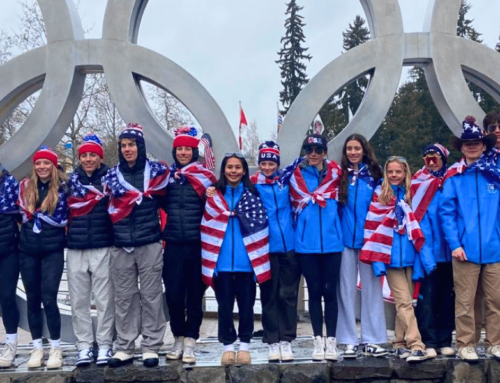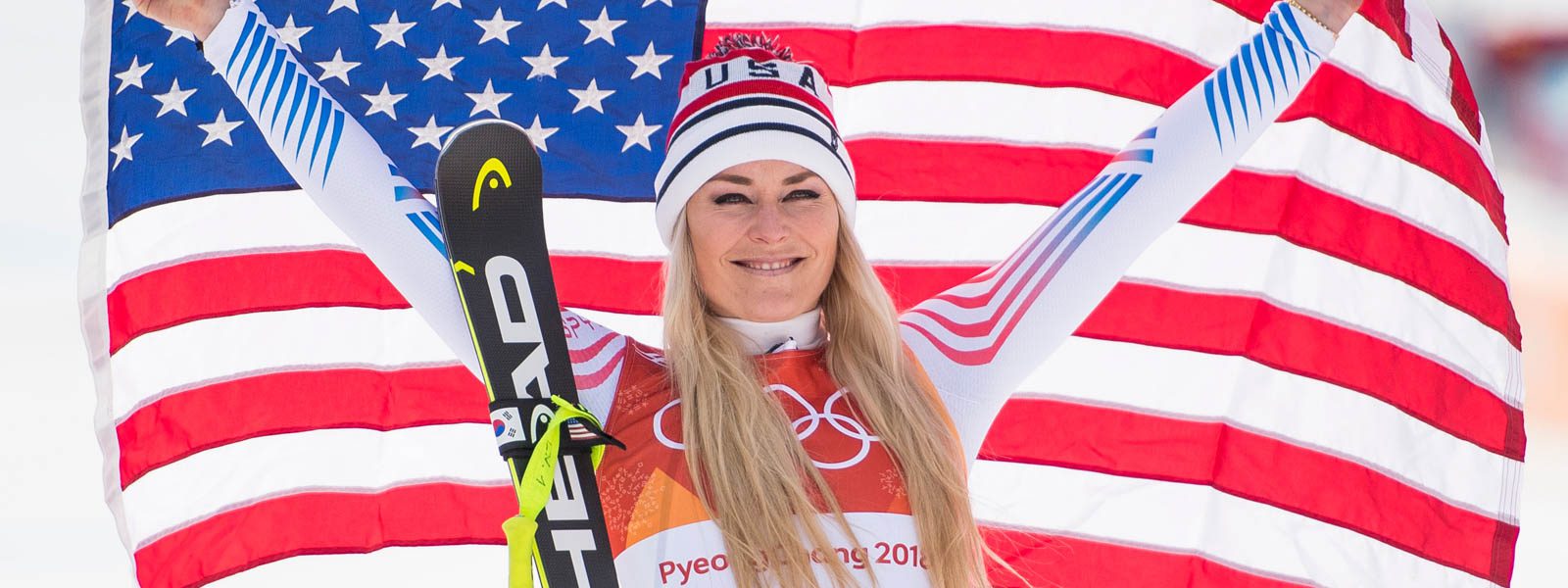Insight Gained into FIS Broadcasting Concorde Agreement
Photo: GARMISCH-PARTENKIRCHEN, GERMANY
Image shows a TV camera.
GEPA pictures
Two sources close to the FIS have confirmed the intent of the FIS Concorde Agreement with Ski Racing Media.
A battle has been waging as to who will control the international broadcast rights of the FIS World Cup. As we near a first-round conclusion, the FIS sees a path to making this considerable change to the future of FIS sports.
Of critical importance, the Swiss courts have ruled that the international broadcast rights of the FIS World Cup are the rightful property of the FIS. Therefore, the courts determined that only the FIS has the right to sell those rights.
Goals of the Concorde Agreement
Ski Racing now has multiple sources close to the FIS, helping us understand the thinking of the FIS concerning their proposed agreement.
Our sources explain that the Concorde Agreement is an attempt by the FIS to modernize the monetization of their most valuable financial asset. The FIS would significantly increase its financial resources by taking control of all international broadcast rights. They intend to use the new revenue to benefit fans, FIS sports, and its National Governing Body members.

Sharing the Revenue with National Governing Bodies
Our sources have given us insight into how the FIS plans to help all member nations prosper and grow.
By directly controlling and centralizing all international broadcasting rights, the FIS believes they could increase the quality of the broadcasts. Also, by sharing broadcasting revenue with all National Governing Bodies (NGBs) members, they can increase their level of professionalism.
To answer the concerns of the host nations, the FIS plans to guarantee them equal revenue to their current agreements with Infront. The FIS also proposes that the event hosts participate in additional revenue sharing from the FIS profits. However, unique to the new Concorde agreement, non-hosting nations would also directly benefit from shared broadcast revenue.
Referencing Infront media, the source close to FIS stated: “Infront has not done a good job using the international broadcast rights to leverage media platforms, the timing of broadcasts, and the production value of the events.” With FIS centralizing control of international broadcast rights and production quality, they would maximize the financial benefit to their sports.
Additional Uses for the Revenue
Beyond profit-sharing, our sources reveal the FIS has additional plans to use the broadcast profits to benefit its sports.
The FIS will use a portion of the money currently included in Infront’s profits, tens of millions of dollars, to improve the production value of the broadcast programming. Their thinking is that better production levels will attract more viewers and increase the value of its broadcasting rights. Satisfied viewers mean more viewers. More viewers mean resources to grow and benefit FIS sports. They plan to invest in new technologies, including but not limited to more cameras, unique camera angles, drones, and new technologies to provide real-time information. Tools used at the most popular and profitable races would become the standard for all FIS broadcasts.
They also intend to use the funds to invest in a currently nonexistent FIS high-quality digital medium platform.
In addition, they would use a portion of the net profits to increase the prize money for athletes.
Another significant benefit of the Concorde Agreement is that it will create resources the FIS would make available to underfunded nations for athlete sponsorship and the training of coaches and competitors. This program would help advance the ability of these nations to compete on the world stage.

The agreement intends to encourage professionalism and increase the commercial success of FIS sports. They know they need to provide a better and more widely viewed international broadcast to thrive and survive.
We understand that the FIS is also looking for ways to expand the number of participant countries with the potential to develop “phenomenal ski resources,” citing the new Olympic venue in China as a prime example.
The battle to Control International Broadcast Rights
It is worth noting that centralized control of international broadcasting rights is now a common approach in sports. It is becoming the modern standard. Evidence reveals many of the most successful professional sports, such as Formula 1, Premier League soccer, and FIFA, use the centralized international rights model.
Understandably, Infront Sports and Media is continuing its attempt to protect itself in the courts. In the past, they have created a good business by consolidating international broadcasting rights and profiting from their resale. However, the court has ruled that the FIS and not the hosting NGBs own the broadcasting rights in question. Therefore, Infront’s contracts with NGBs are for rights the NGBs do not actually own.
Previously, meetings had been scheduled between Infront Sports and Media and the FIS. However, Infront canceled these meetings for unknown reasons. Ski Racing assumes that the court’s ruling will encourage Infront to come to the negotiating table. We believe they will wish to explore the possibility of a newly defined financial partnership.
So, what’s next? A major signal will come later this month when the FIS Congress meets. For the first time, this would provide international broadcasting revenue for all NGBs. Sources close to FIS speculate that although the big central European NGBs are less inclined to make changes, the concept would likely receive support from the vast majority of 140 FIS NGBs.
FIS believes that the Concorde Agreement is the best opportunity they have to increase the health of FIS snow sports and the viability of their member National Governing Bodies.





















